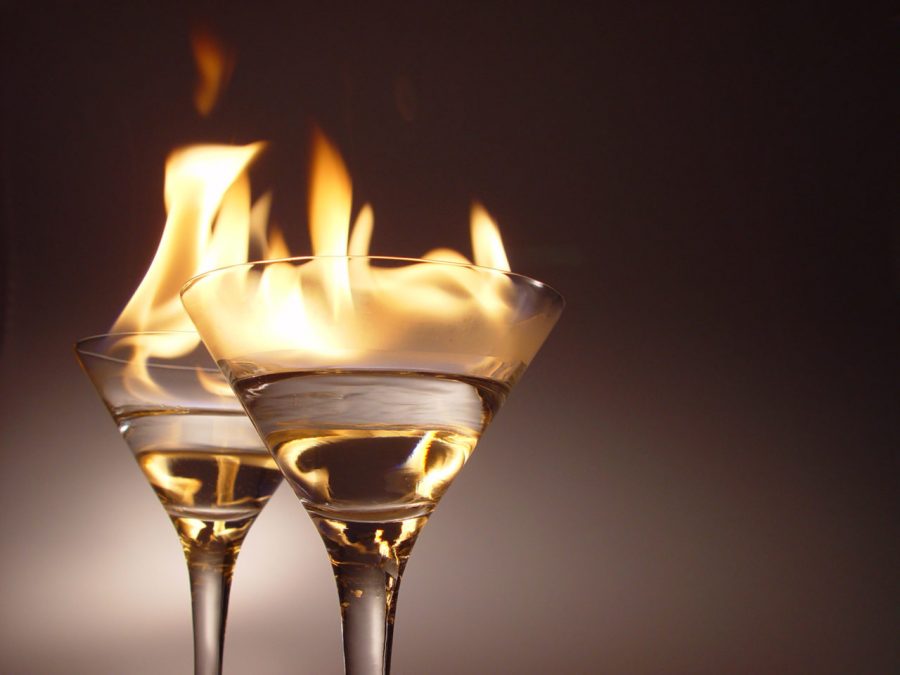The Zion Curtain is about to fall! Rejoice! And then I whisper under my breath, “What the hell’s the Zion Curtain?”
I had no clue what it meant before yesterday and now that I do know I’m not so keen to rejoice. The fall of the Zion Curtain is yet another reminder of how backward this state’s leadership is.
If you’re from out of state let me explain. The Zion Curtain is a law that says that restaurants have to prepare alcoholic drinks in a separate room closed off to the public or behind a physical barrier, lest the populace be corrupted by the evil spirits. In other words, it’s the longest arm of this state’s psychotic obsession with alcohol and purity.
A state that cares more about how people mix drinks than it does about having one of the highest rates of prescription drug abuse. A state that cares more about whether or not you’re going to have fries with your beer than it does about having one of the largest gender pay gaps. A state that paints you as mentally ill for consuming alcohol despite the fact that it has one of the highest rates of actual mental illness and clinical depression.
In what kind of whack-jobs wonderland do I live where these prodigious issues take the backseat to someone’s moral intransigence on alcohol? Never have I been witness to a governing class that has such a screwed up sense of priority. The blatant commingling of Utah’s religious brand and the values of the state is disturbing and glossing over the fact that it’s damn near unconstitutional, the policies that have come out of it are also woefully short-sighted.
If you were to listen to the House Majority Leader Brad Wilson, Utah’s alcohol laws are a shining beacon in a dreadful sea. He says that they have led to the lowest underage drinking rate in the country and some of the lowest drunk driving rates. In a way it’s true, but it’s a pretty rigged statistic when you consider that 60% of the state doesn’t even drink alcohol on moral grounds. It’s like saying that fish are 60% less likely to die in a fire. Go figure.
But even more important is all of the unintended consequences that get swept under the rug when we talk about the state’s liquor policies. No one talks about the man who, exposed to alcohol for the first time at the age of 21, doesn’t know how to handle it and bites off more than he can chew. No one talks about the guy who, used to Utah’s watered-down beer, takes a vacation and finds himself vastly over his limits and putting everyone else in danger. No one talks about the girl who, forced to go off-campus to enjoy a college party, finds herself in the wrong part of town kidnapped, raped or worse.
The extent of this state’s alcohol policy is clear: alcohol is bad. The less the better. But our policies refuse to acknowledge that alcohol is, in fact, a part of the American culture. That unless we suddenly wake up in a world without it, people are going to seek it out. That in a world where alcohol exists, they succeed only in making people more desperate and more unprepared for what it brings.
This isn’t only a problem with Utah, it’s a problem with the entire American approach to underage drinking. Take a look at most European countries where kids can start drinking at as young as 13 and you’ll see incredibly low rates of alcohol-related fatalities. America’s approach to underage drinking is archaic and often does more harm than good. It fetishizes alcohol by making it taboo. One only need look to prohibition to see all the black-market activity, crime, smuggling, and death that came with it. But only in this state have I realized that that’s too tall a question for our legislators to ponder. How could I even dream to convince them that rethinking the drinking age and college alcohol policies might be a good idea when they haven’t even got past whether or not I can have a drink at the movies?


